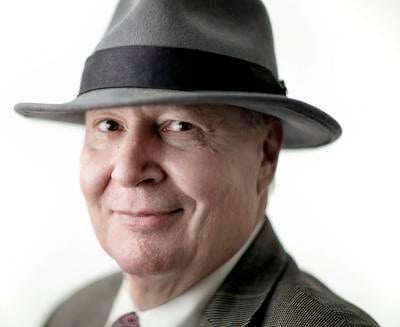There once was an advocacy organization operating under the least truthful name possible: “New Mexicans for Money Out of Politics.”
The group actually supported public financing of campaigns. Those who babble about the evils of money in politics only act as though green confetti instead of cold cash goes to publicly financed candidates.
More important, the possibility of candidates securing public financing does not discourage privately financed campaigns.
Santa Fe Mayor Alan Webber in 2020 was advertised as a speaker at an event for the successor organization to New Mexicans for Money Out of Politics. Webber ran for reelection the following year. He could have opted for public financing but decided instead to solicit private campaign contributions.
Webber raised and spent $507,000, more than three times as much as his closest competitor and a record for a Santa Fe city election. Webber still hasn’t said whether he will seek a third term this fall, heaven forbid.
Hs main rival from 2021, former City Councilor JoAnne Vigil Coppler, is again running for mayor. She has decided on a privately financed campaign rather than attempting to qualify for public funding.
“Both ways are difficult, believe it or not,” said Vigil Coppler, who ran a publicly funded campaign for the City Council before going private in the last mayoral campaign. “People say, ‘First I need to sign something and now I need to give something?’ ” a reference to a requisite number of $5 contributions to become eligible for considerably more in public financing.
Campaigns funded by taxpayer dollars can be popular, especially when the amount far exceeds what most candidates can collect in private contributions.
Eight of the 11 announced candidates for mayor of Albuquerque are seeking public financing for the fall election. Those who clear qualifying hurdles will receive more than $750,000 each.
Albuquerque’s sitting mayor, Tim Keller, proved taxpayers’ money can be crucial to victory.
Keller four years ago qualified for public financing in his first reelection campaign. His main challenger, former Bernalillo County Sheriff Manny Gonzales, also sought public funds for his campaign. But the city clerk found Gonzales forged signatures and listings of small donations needed to qualify for the public money. Keller trounced him.
Candidates for city offices in Santa Fe can begin trying Monday to qualify for public funding. City Councilor Michael Garcia, who is running for mayor, said he will try to obtain public financing.
If he succeeds, a maximum of $96,000 would be available for his campaign. Most of that cash would come from taxpayers, but a nominal portion would have to be raised by Garcia. This circumstance inspired him to make one of his first campaign promises.
“I’m not collecting any money from outside of New Mexico. I want to keep it as local as possible,” Garcia said.
Webber in his two victorious campaigns for mayor placed no such restriction on himself. Most of his contributions in 2021 were from residents of New Mexico, but he also received money from many out-of-state contributors. A few were a counselor from Rockford, Ill., and retirees from Seattle and Chicago. Each gave Webber $2,500.
Ron Trujillo, who finished second to Webber in the 2018 campaign, is running for mayor again this year. Trujillo used public financing in his first bid for the city’s top office. He said he is undecided what he will do this year.
Trujillo in 2018 qualified for $60,000 in public financing, the limit at the time. He spent only about $17,000 and returned almost $43,000 to the public treasury. In contrast, Webber raised $315,000 in his privately financed campaign.
Money, though, does not guarantee victory. Garcia in 2023 opted for public financing in his campaign for reelection to the City Council. He defeated a privately financed challenger who spent twice as much.
Years earlier, Renee Villarreal won a Santa Fe City Council seat with five times as many votes as the biggest spender, a privately financed candidate.
Even if all candidates for a city office accept public financing, there is no guarantee the field of competition will be level.
Santa Fe’s three mayoral candidates in the 2014 election all received $60,000 for their publicly funded campaigns. But political action committees poured tens of thousands of dollars into their own effort to elect Javier Gonzales.
One voter filed a complaint against Gonzales with the city’s ethics board, claiming the candidate violated rules by campaigning in coordination with PACs. Gonzales said he had nothing to do with the political organizations and wished they would go away. He won the mayoral election in a trot.
I’m happily in the minority of Santa Fe residents who believe public financing of campaigns drains money that would be better spent improving streets, parks and police protection.
And even if Santa Fe, like Albuquerque, poured $750,000 per candidate into the mayoral election, Webber might raise
$2 million and win again, heaven forbid.
Ringside Seat is an opinion column about people, politics and news. Contact Milan Simonich at msimonich@sfnewmexican.com or 505-986-3080.


















